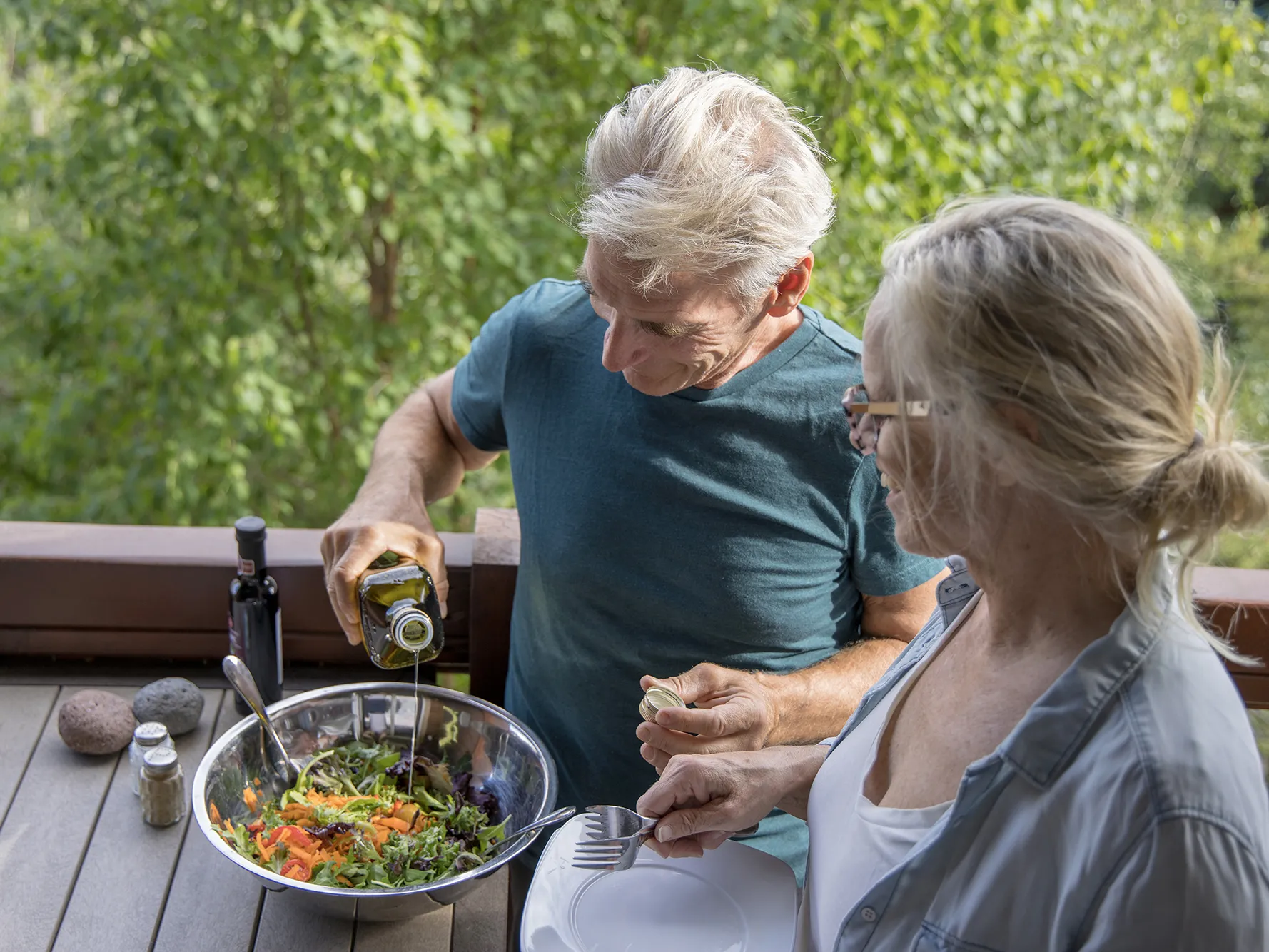7 strategies to declutter and reduce related stress
Researchers are finding that a disordered, chaotic living space can lead to negative feelings. So weeding out can do you good.
By Bernadette Mazurek Melnyk and Susan Neale

(Photo from Getty Images)
You’ve heard about creating beautiful, harmonious spaces to live and work in by decluttering — getting rid of the things you don’t need anymore and organizing what you want to keep. Have you considered, though, how clutter affects your stress and well-being?
In short, a jumble of things can cause a great deal of stress. Researchers Joseph Ferrari and Catherine Roster define clutter as “an overabundance of possessions that collectively create chaotic and disorderly living spaces.” Their research indicates that such an environment can lead to frustration and life dissatisfaction.
Other studies show that people living with clutter often have elevated levels of the stress hormone cortisol. The chaos can feed a continual, overwhelming sense that there is more work to do, which can increase stress and anxiety, negatively affect mood and disrupt sleep patterns.
A growing body of research also shows that living and working in cluttered spaces can negatively affect our productivity, because it often prompts us to use avoidance coping strategies that can result in unhealthy behaviors, such as snacking on junk food or vegging in front of the TV.
“One of the reasons that clutter eats away at us is because we have to search for something just to find out whether it’s even there,” organizing expert Marie Kondo says. “And many times, no matter how much we search, we cannot seem to find what we are looking for.”
Just finding a storage system with enough containers to hold all of your stuff won’t really help with the stress. Concealing things you don’t need under a lid, Kondo says, won’t solve your clutter problem. Instead, it’s better to start by identifying what you really want to keep and finding a designated place for it. Then let the rest go.
Why do we keep so many things we don’t need? Often, we keep an object because of the memory associated with it and the sense of identity that memory gives us, says Ohio State Marketing Professor Rebecca Reczek, Berry Chair of New Technologies in Marketing.
Cassandra Aarssen, author of “Real Life Organizing: Clean and Clutter Free in I5 Minutes a Day,” recognizes that many of us were brought up to not be wasteful, and we may have strong feelings about throwing things away. It isn’t wasteful, though, to get rid of garbage and things you don’t use, Aarssen points out. She recommends focusing instead on not wasting space in your home or office.
Here are some expert tips to declutter. We wish you the joy of knowing where your belongings are, the peace of having those things that are dear to you on display and the relaxed, stress-free state of mind that will help you work — and play — productively.
Take a picture, then donate.
A study conducted by Reczek and other researchers found that people were more willing to give up items if they photographed them first. A photo may be all you need to preserve the memory of your great summer as a lifeguard, and you can finally let that old bathing suit go!
Sort by category.
Kondo advises going through belongings and discarding those you don’t want, need or use by category, rather than location. That way you won’t be shifting items from room to room. Sorting sentimental items is the most difficult, so start with clothes, then books, papers and miscellaneous items, leaving sentimental objects for last.
Follow the 20/20 rule.
Ohioans Joshua Fields Millburn, T.K. Coleman and Ryan Nicodemus — aka The Minimalists — say, if you can replace it in 20 minutes for under $20, you don’t need to keep it. (This will help you empty out that drawer full of unused pencils, nails and paperclips.) Millburn, Coleman and Nicodemus blog and host a podcast on minimalism — the concept of living life with fewer possessions.
Shift your focus.
Don’t think about how you can serve your things — instead, consider how well they serve you. Move from: “I should wear these shoes more often to get use out of them” to “I don’t wear these shoes much. They aren’t useful to me. I can donate them.” Donating them makes room in your closet for shoes that are more useful.
Clear out items that cause stressful negative emotions.
“Unused items are toxic,” Aarssen says. They waste space and also may carry emotional baggage, such as guilt for not using them, which can contribute to stress.
Give items new life by donating to those in need.
It feels really good to know that the coat that’s been sitting in your attic for 10 years is now keeping someone warm. The gratitude you feel for being able to help others is beneficial to your wellness, too!
Practice Vitamin G as you decide what to give away.
Remember, the daily practice of gratitude — in this case, appreciating the time you’ve had with your belongings — will go a long way in reducing stress and improving your mood.

With simple efforts, you can make healthy choices to help protect yourself and loved ones from heart disease.

Researchers have studied centenarians living around the world to learn what habits make a difference for longevity.

Listening well is an art that recognizes and respects people’s emotions and values. It pays benefits for them and you.

